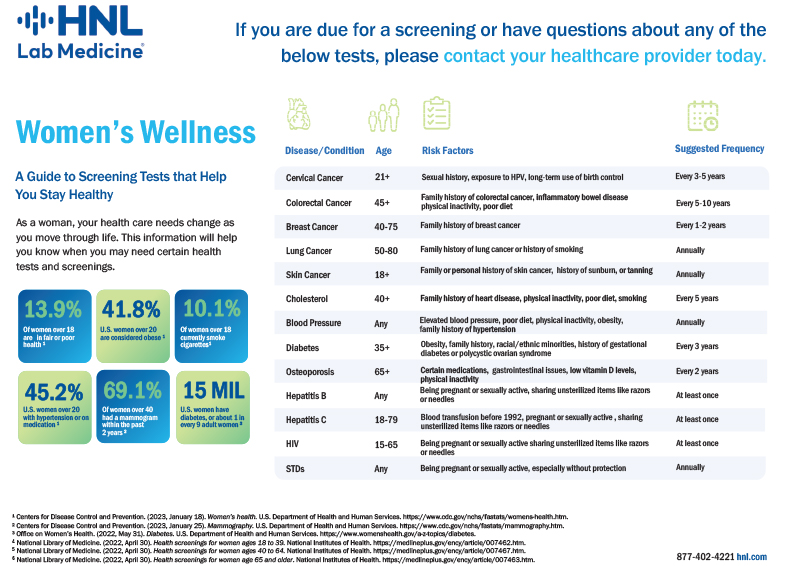Women's Wellness

Serious medical issues don’t always cause symptoms. Screening tests are important because they detect health conditions in their earliest, most treatable stages. Personal risk factors, such as a family history of cancer, might influence how frequently you need screening.
Your preventative healthcare needs change as you age, too. Struggling to keep track of the screening tests you need to schedule? Check out our infographic below.

Download the Infographic
¹ Centers for Disease Control and Prevention. (2023, January 18). Women’s health. U.S. Department of Health and Human Services. https://www.cdc.gov/nchs/fastats/womens-health.htm. ² Centers for Disease Control and Prevention. (2023, January 25). Mammography. U.S. Department of Health and Human Services. https://www.cdc.gov/nchs/fastats/mammography.htm. ³ Office on Women’s Health. (2022, May 31). Diabetes. U.S. Department of Health and Human Services. https://www.womenshealth.gov/a-z-topics/diabetes. ⁴ National Library of Medicine. (2022, April 30). Health screenings for women ages 18 to 39. National Institutes of Health. https://medlineplus.gov/ency/article/007462.htm. ⁵ National Library of Medicine. (2022, April 30). Health screenings for women ages 40 to 64. National Institutes of Health. https://medlineplus.gov/ency/article/007467.htm. ⁶ National Library of Medicine. (2022, April 30). Health screenings for women age 65 and older. National Institutes of Health. https://medlineplus.gov/ency/article/007463.htm.